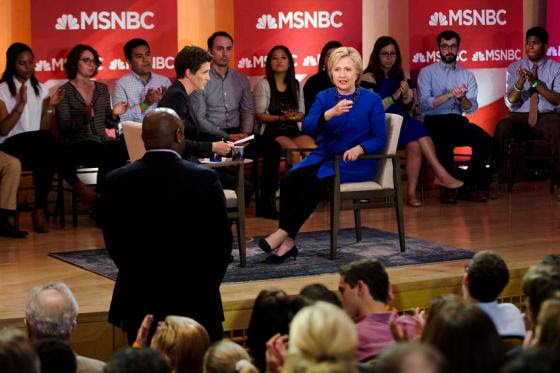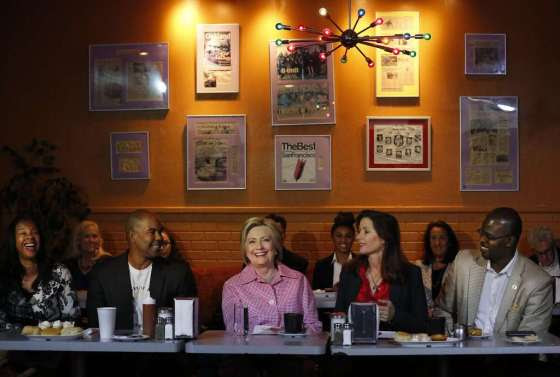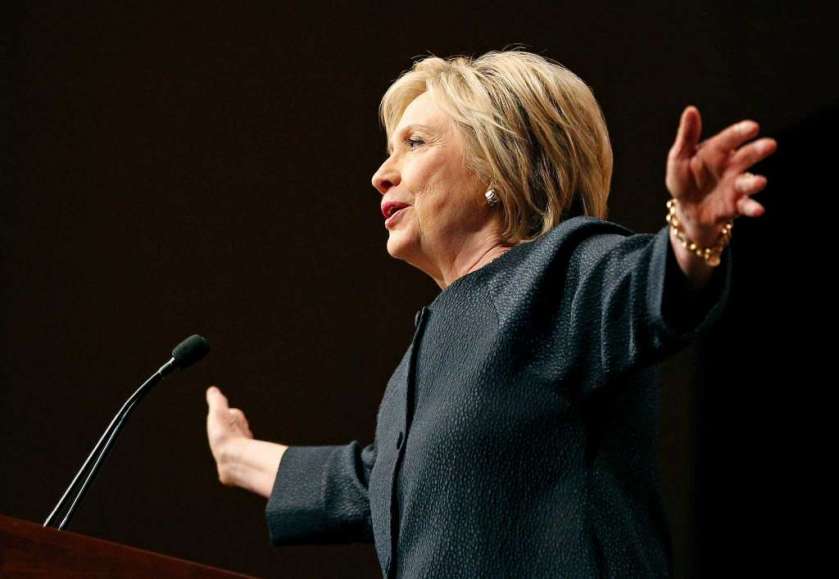
REMARKS BY PRESIDENT OBAMA
AND PRIME MINISTER ABE OF JAPAN
Hiroshima Peace Memorial
Hiroshima, Japan
5:45 P.M. JST
PRESIDENT OBAMA: Seventy-one years ago, on a bright, cloudless morning, death fell from the sky and the world was changed. A flash of light and a wall of fire destroyed a city and demonstrated that mankind possessed the means to destroy itself.
Why do we come to this place, to Hiroshima? We come to ponder a terrible force unleashed in a not so distant past. We come to mourn the dead, including over 100,000 in Japanese men, women and children; thousands of Koreans; a dozen Americans held prisoner. Their souls speak to us. They ask us to look inward, to take stock of who we are and what we might become.
It is not the fact of war that sets Hiroshima apart. Artifacts tell us that violent conflict appeared with the very first man. Our early ancestors, having learned to make blades from flint and spears from wood, used these tools not just for hunting, but against their own kind. On every continent, the history of civilization is filled with war, whether driven by scarcity of grain or hunger for gold; compelled by nationalist fervor or religious zeal. Empires have risen and fallen. Peoples have been subjugated and liberated. And at each juncture, innocents have suffered, a countless toll, their names forgotten by time.
The World War that reached its brutal end in Hiroshima and Nagasaki was fought among the wealthiest and most powerful of nations. Their civilizations had given the world great cities and magnificent art. Their thinkers had advanced ideas of justice and harmony and truth. And yet, the war grew out of the same base instinct for domination or conquest that had caused conflicts among the simplest tribes; an old pattern amplified by new capabilities and without new constraints. In the span of a few years, some 60 million people would die -- men, women, children no different than us, shot, beaten, marched, bombed, jailed, starved, gassed to death.
There are many sites around the world that chronicle this war -- memorials that tell stories of courage and heroism; graves and empty camps that echo of unspeakable depravity. Yet in the image of a mushroom cloud that rose into these skies, we are most starkly reminded of humanity’s core contradiction; how the very spark that marks us as a species -- our thoughts, our imagination, our language, our tool-making, our ability to set ourselves apart from nature and bend it to our will -- those very things also give us the capacity for unmatched destruction.
How often does material advancement or social innovation blind us to this truth. How easily we learn to justify violence in the name of some higher cause. Every great religion promises a pathway to love and peace and righteousness, and yet no religion has been spared from believers who have claimed their faith as a license to kill. Nations arise, telling a story that binds people together in sacrifice and cooperation, allowing for remarkable feats, but those same stories have so often been used to oppress and dehumanize those who are different.
Science allows us to communicate across the seas and fly above the clouds; to cure disease and understand the cosmos. But those same discoveries can be turned into ever-more efficient killing machines.
The wars of the modern age teach this truth. Hiroshima teaches this truth. Technological progress without an equivalent progress in human institutions can doom us. The scientific revolution that led to the splitting of an atom requires a moral revolution, as well.
That is why we come to this place. We stand here, in the middle of this city, and force ourselves to imagine the moment the bomb fell. We force ourselves to feel the dread of children confused by what they see. We listen to a silent cry. We remember all the innocents killed across the arc of that terrible war, and the wars that came before, and the wars that would follow.
Mere words cannot give voice to such suffering, but we have a shared responsibility to look directly into the eye of history and ask what we must do differently to curb such suffering again. Someday the voices of the hibakusha will no longer be with us to bear witness. But the memory of the morning of August 6th, 1945 must never fade. That memory allows us to fight complacency. It fuels our moral imagination. It allows us to change.
And since that fateful day, we have made choices that give us hope. The United States and Japan forged not only an alliance, but a friendship that has won far more for our people than we could ever claim through war. The nations of Europe built a Union that replaced battlefields with bonds of commerce and democracy. Oppressed peoples and nations won liberation. An international community established institutions and treaties that worked to avoid war and aspire to restrict and roll back, and ultimately eliminate the existence of nuclear weapons.
Still, every act of aggression between nations; every act of terror and corruption and cruelty and oppression that we see around the world shows our work is never done. We may not be able to eliminate man’s capacity to do evil, so nations –- and the alliances that we’ve formed -– must possess the means to defend ourselves. But among those nations like my own that hold nuclear stockpiles, we must have the courage to escape the logic of fear, and pursue a world without them.
We may not realize this goal in my lifetime. But persistent effort can roll back the possibility of catastrophe. We can chart a course that leads to the destruction of these stockpiles. We can stop the spread to new nations, and secure deadly materials from fanatics.
And yet that is not enough. For we see around the world today how even the crudest rifles and barrel bombs can serve up violence on a terrible scale. We must change our mindset about war itself –- to prevent conflict through diplomacy, and strive to end conflicts after they’ve begun; to see our growing interdependence as a cause for peaceful cooperation and not violent competition; to define our nations not by our capacity to destroy, but by what we build.
And perhaps above all, we must reimagine our connection to one another as members of one human race. For this, too, is what makes our species unique. We’re not bound by genetic code to repeat the mistakes of the past. We can learn. We can choose. We can tell our children a different story –- one that describes a common humanity; one that makes war less likely and cruelty less easily accepted.
We see these stories in the hibakusha –- the woman who forgave a pilot who flew the plane that dropped the atomic bomb, because she recognized that what she really hated was war itself; the man who sought out families of Americans killed here, because he believed their loss was equal to his own.
My own nation’s story began with simple words: All men are created equal, and endowed by our Creator with certain unalienable rights, including life, liberty and the pursuit of happiness. Realizing that ideal has never been easy, even within our own borders, even among our own citizens.
But staying true to that story is worth the effort. It is an ideal to be strived for; an ideal that extends across continents, and across oceans. The irreducible worth of every person, the insistence that every life is precious; the radical and necessary notion that we are part of a single human family -– that is the story that we all must tell.
That is why we come to Hiroshima. So that we might think of people we love -- the first smile from our children in the morning; the gentle touch from a spouse over the kitchen table; the comforting embrace of a parent –- we can think of those things and know that those same precious moments took place here seventy-one years ago. Those who died -– they are like us. Ordinary people understand this, I think. They do not want more war. They would rather that the wonders of science be focused on improving life, and not eliminating it.
When the choices made by nations, when the choices made by leaders reflect this simple wisdom, then the lesson of Hiroshima is done.
The world was forever changed here. But today, the children of this city will go through their day in peace. What a precious thing that is. It is worth protecting, and then extending to every child. That is the future we can choose -– a future in which Hiroshima and Nagasaki are known not as the dawn of atomic warfare, but as the start of our own moral awakening. (Applause.)
PRIME MINISTER ABE: (As translated.) Last year, at the 70th anniversary of the end of war, I visited the United States and made a speech as Prime Minister of Japan at a joint meeting of the U.S. Congress. That war deprived many American youngsters of their dreams and futures. Reflecting upon such harsh history, I offered my eternal condolences to all the American souls that were lost during World War II. I expressed gratitude and respect for all the people in both Japan and the United States who have been committed to reconciliation for the past 70 years.
Seventy years later, enemies who fought each other so fiercely have become friends, bonded in spirit, and have become allies, bound in trust and friendship, deep between us. The Japan-U.S. alliance, which came into the world this way, has to be an alliance of hope for the world.
So I appealed in the speech. One year has passed since then. This time, President Obama, for the first time as leader of the United States, paid a visit to Hiroshima, the city which suffered the atomic bombing. U.S. President witnessing the reality of atomic bombings and renewing his determination for a world free of nuclear weapons -- this gives great hope to people all around the world who have never given up their hope for a world without nuclear weapons.
I would like to give a whole-hearted welcome to this historic visit, which had been awaited not only by the people of Hiroshima, but also by all the Japanese people. I express my sincere respect to the decision and courage of President Obama. With his decision and courage, we are opening a new chapter to the reconciliation of Japan and the United States, and in our history of trust and friendship.
A few minutes ago, together, I and President Obama offered our deepest condolences for all those who lost their lives during World War II and also by the atomic bombings. Seventy-one years ago in Hiroshima and in Nagasaki, a great number of innocent citizens’ lives were cost by a single atomic bomb without mercy. Many children and many citizens perished. Each one of them had his or her life dream and beloved family. When I reflect on this sheer fact, I cannot help but feel painful grief.
Even today, there are victims who are still suffering unbearably from the bombings. Feeling of those who went through unimaginable tragic experiences, indeed, in this city 71 years ago -- it is unspeakable. In their minds, various feelings must have come and gone -- that of those, this must be in common: That any place in the world this tragedy must not be repeated again.
It is the responsibility of us who live in the present to firmly inherit these deep feelings. We are determined to realize a world free of nuclear weapons. No matter how long and how difficult the road will be, it is the responsibility of us who live in the present to continue to make efforts.
Children who were born on that unforgettable day lit the light believing in permanent peace. To make every effort for the peace and prosperity in the world, vowing for this light -- this is the responsibility of us all who live in the present. We will definitely fulfill our responsibility. Together, Japan and the United States will become a light for hope, for the people in the world. Standing in this city, I am firmly determined, together with President Obama. This is the only way to respond to the feelings of the countless spirits -- victims of the atomic bombs in Hiroshima and Nagasaki. I am convinced of this. (Applause.)








